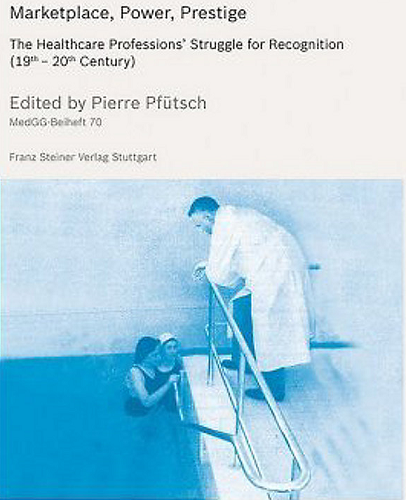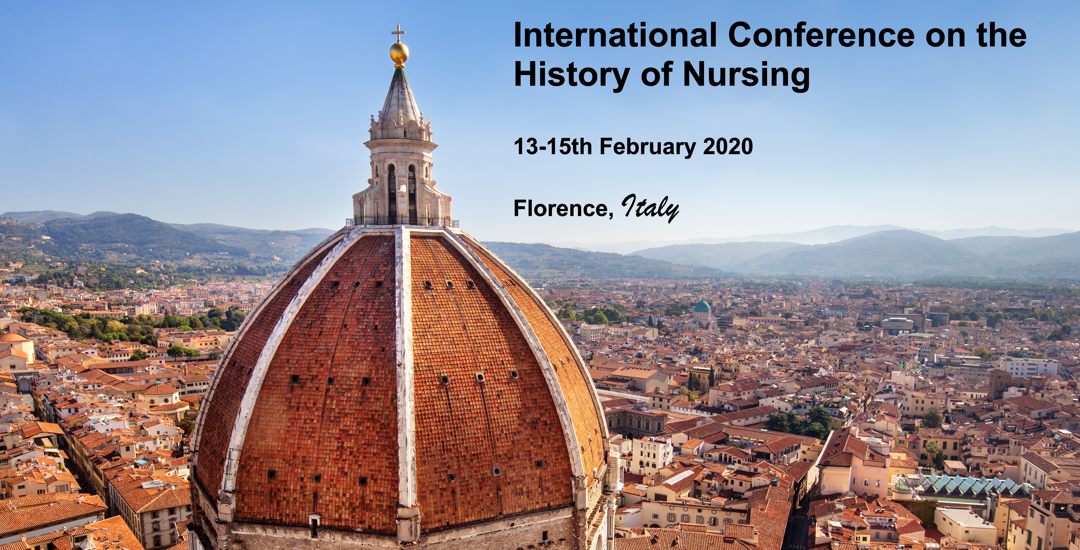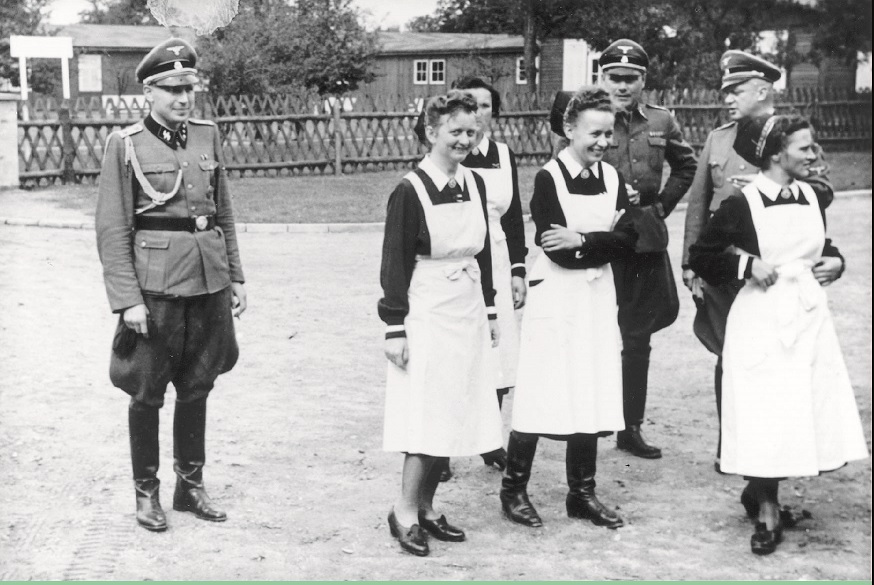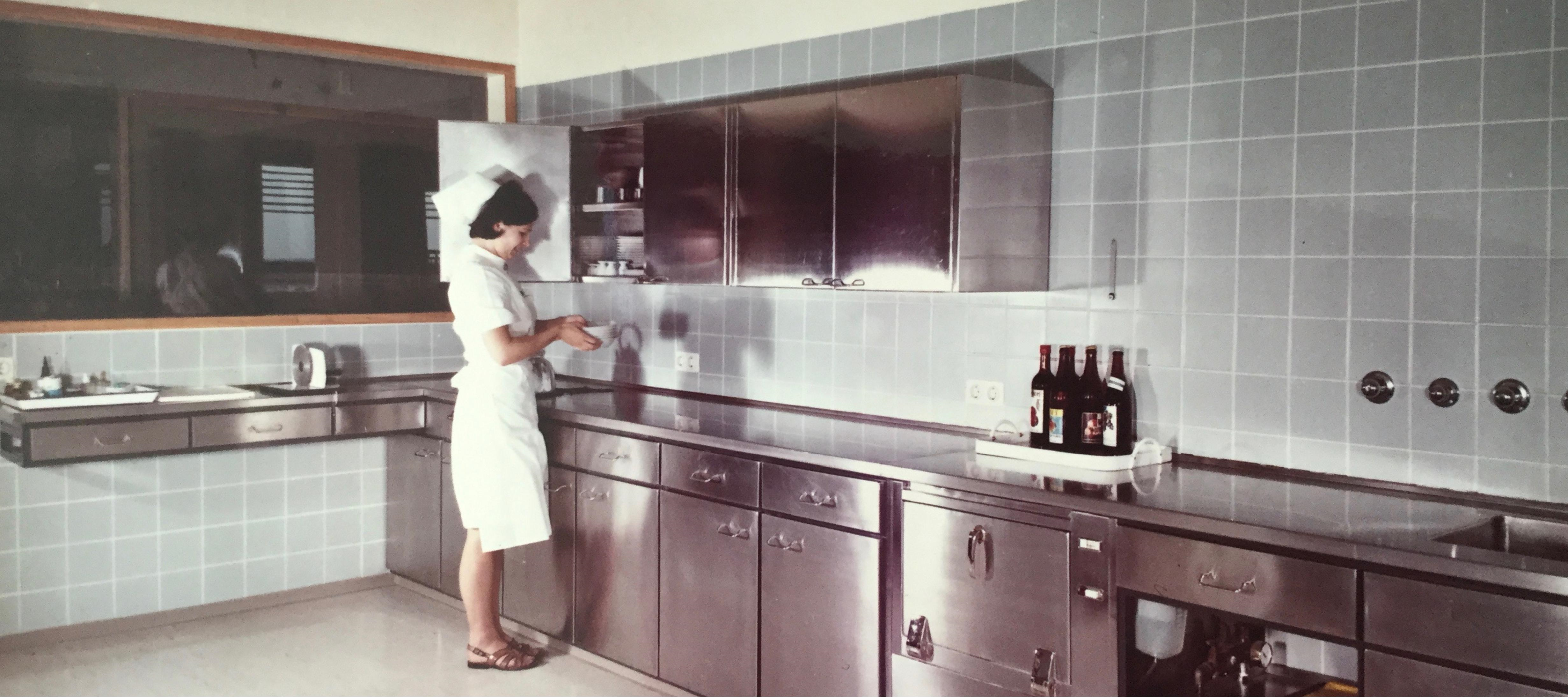
Juni 24, 2019
The healthcare systems of Western States are characterised by complex structures and diverse activities. The authors investigate the conflicts of various professions within the medical market from a historical perspective, thereby reaching a better understanding of contemporary questions and problems concerning the field of medical care. The focus lies on analysing the establishment of non-physician health professions in their social framework as well as their profession-specific developments. The contributions outline and explore the conflicts within one professional group as well as those between different professional groups. This volume not only examines the history of nursing, but also the history of other non-physician professions such as midwives, diabetes advisors and paramedics. The authors are particularly interested in investigating which player had interpretational sovereignty on the medical market, the social prestige of different health professions, and the profession-specific practices.
Pierre Pfütsch (Herausgeber)
2019
|
1. Auflage
256 Seiten
Franz Steiner Verlag
978-3-515-12299-3 (ISBN)
weitere Informationen finden Sie unter folgendem Link:
http://www.steiner-verlag.de/titel/61695.html
Mai 31, 2019
Complaints about a shortage of staff have been a frequent topic in
the history of nursing. There was hardly ever enough nursing staff for the
multitude of potential working areas to cope with it all. Yet, we can identify
phases of an increased perception of crises during which nursing staff
shortages were announced, at times even transnationally. The 5th Workshop of
the German Association for the History of Nursing that took place 13-14 July
2018 at the hospital museum in Bielefeld was dedicated to the history of these
shortages.
The goal of the workshop was to put the current shortage of nurses
that has been discussed in the media and in politics within a historical
perspective, and to explore the numerous dimensions of such shortages and their
meaning for the history of nursing. The time period under discussion
encompassed the 18th century to the 1980s. Relinde
Meiwes (Research project: Catholic nursing care in the 19th and 20th
centuries, in cooperation with the office of Franciscan Research, Münster) showed
that Catholic communities of nurses significantly contributed to the expansion
of nursing in the 19th century in the face of a dramatic shortage of staff.
Meiwes pointed in particular to the shortage of nurses in rural areas that has
often been neglected in historical research. Monja Schünemann (Berlin) presented her analysis of the journal of
the Catholic association of hospitals titled “Krankendienst” from the 1920s.
Here, the shortage of nurses was largely interpreted as a consequence of
changes in women’s life plans. Uta
Kanis-Seyfried (University of Ulm) used a longitudinal approach to analyse
the development of psychiatric nursing between the poles of staff shortage,
precarious working conditions, gender specific discriminations and efforts for
a professionalisation of the field from the 18th to the 20th century.
Additional talks focussed on the time after the Second World War, in
particular the growing shortage of nurses since the end of the 1950s. Christine Ludwig (Institute for Labour
and Technology, Gelsenkirchen) discussed in this context the development of an
independent occupational profile of geriatric care. Kerstin Stockhecke (Main Archive of the v. Bodelschwingh Foundation
Bethel) and Maike Rotzoll
(Universitity of Heidelberg) focussed on recruitment problems within the
communities of deaconesses from the 1950s onwards. To bridge the time between
finishing elementary school and starting nursing training, the deaconesses were
fairly successful when they began to establish so-called nursing pre-schools. Christoph Schwamm (Institute for the History
of Medicine of the Robert Bosch Foundation, Stuttgart) discussed the
significance of male nurses in the discourse on the shortage of nurses during
the 1960s and 1970s and investigated in particular the representations of men
and masculinity in nursing journals at the time. Markus Thulin (University of Cologne), finally, shifted the
perspective from Germany to Chile and looked at the time of the military
dictatorship in the 20th century which was initially supported by large nursing
organisations. This dictatorship ultimately introduced, however, a
de-professionalisation of nursing and a privatisation and deregulation of
health care that resulted in a drastic shortage of nursing experts.
Overall, all papers illustrated that a shortage of nurses is omnipresent within the history of nursing and that they have often been the starting point for necessary changes within nursing care.
Text: Susanne Kreutzer

Mai 27, 2019
Weitere Informationen: Website der EAHN [link]
Mai 20, 2019
Ort: Institut für Geschichte und Ethik der Medizin, Im Neuenheimer Feld 327, 69120 Heidelberg, 1. OG., Besprechungsraum 107a
Pflege(aus)bildung in historischer Perspektive
11:00 – 11:15 Begrüßung und Vorstellung
11:15 – 11:45 Fruzsina Müller (Leipzig): Die Krankenpflegeschule des Leipziger Diakonissenhauses
11:45 – 12:15 Uwe Kaminsky (Bochum): Pflegeausbildung für Männer am Ende der Weimarer Republik am Beispiel von Einrichtungen der Inneren Mission
12:15 – 12:45 Stefan Kiefer (Wiesloch): Die „Wieslocher Revolution“. Eine Antwort auf die „Wärterfrage“ und die Auswirkung auf Ausbildung und Professionalisierung des Pflegepersonals in Baden
12:45 – 13:30 Pause
13:30 – 14:00 Annett Büttner (Leipzig): Ausbildung der chirurgischen Assistenzberufe von der Antike bis in die Gegenwart- Ein Überblick
14:00 – 14:30 Patrick Buber (Gevelsberg): Orte der Lehre und des Lernens. Die Entwicklung der Fachseminare für Altenpflege in NRW von 1950 bis 2000
14:30 – 15:00 Pierre Pfütsch (Stuttgart): Die beginnende Akademisierung des Rettungsdienstpersonals – auf den Spuren der Pflege?
15:00 Mitgliederversammlung der Fachgesellschaft Pflegegeschichte
Wegbeschreibung
Die Adresse lautet
Institut für Geschichte und Ethik der Medizin
Im Neuenheimer Feld 327
69120 Heidelberg
Der Heidelberger Hbf wird zurzeit umgebaut. Die Straßenbahn-Linie 24 Richtung
„Hans-Thoma-Platz“ fährt an der Ersatzhaltestelle HD Hbf West ab, bei
der Haltestelle „Bunsengymasium“ aussteigen. Dann am Mathematikon
geradeaus gehen, an der roten Schriftskulptur „Dem lebendigen Geist“ vorbei
laufen und dann leicht rechts halten – man sieht dann die lila 307 auf dem
Betongebäude, auf dieses Gebäude zugehen bis 327, dann ins Gebäude gehen,
gleich gegenüber vom Eingang ins Treppenhaus, in das 1. OG und dann scharf
links befindet sich der Eingang zum Institut.
Für den Fall, dass sich jemand verlaufen sollte, hier die Handynummer von Prof.
Karen Nolte: 0171-3097195, sowie die Nummer Ihres Büros: 06221 54 82 12.

März 18, 2019
Petra Betzien
Krankenschwestern im System der nationalsozialistischen Konzentrationslager Selbstverständnis, Berufsethos und Dienst an den Patienten im Häftlingsrevier und SS-Lazarett
Die vorliegende Untersuchung widmet sich nationalsozialistischen Konzentrationslager. Im Fokus stehen die Tätigkeiten und Verhaltensweisen der in den Konzentrationslagern dienstverspflichteten Krankenschwestern. Die Autorin nimmt dabei sowohl die krankenpflegerischen Bedingungen in den Häftlingsrevieren in den Blick, als auch im äußeren Bereich der Lager, in den SS-Lazaretten. Sie fragt nach dem Pflegeethos der Schwestern angesichts des rassenhygienischen Forderungskatalogs und der Weltanschauung des Nationalsozialismus und arbeitet ihre Handlungsoptionen heraus. Im Zuge der so entstehenden „dichten Beschreibung“ der krankenpflegerischen Praxis in den Konzentrationslagern zeigt sich, dass Krankenschwestern Mittäterinnen bei der Ermordung von Häftlingen werden konnten und zugleich in den SS-Lazaretten die Behandlung von Tätern und ihren Familien unterstützten. Die Arbeit schließt damit ein Forschungsdesiderat.
Erschienen im kula Verlag, 600 Seiten, 20 Abbildungen
Nähere Informationen unter: www.kulaverlag.de
ISBN 978-3-945340-11-0 € 64,00 (D) / € 65,80 (A)

Nov. 21, 2018
Zeit & Ort
jeweils 18:00 Uhr (s.t.)
Gebäude INF 130.2 (Marsilius Arkaden, Turm Süd), 1. OG, Raum K13
14.11.2018: Dr. Christoph Schwamm, IGM Robert Bosch Stiftung, Stuttgart
„Die Pflege erfordert ein normales Maß an männlicher Härte.“ Das Unbehagen an
männlichen Pflegekräften im „Modernen Frauenberuf“, ca. 1965 – 1975
12.12.2018: Prof. Dr. Susanne Kreutzer, Fachhochschule Münster
Der Pflegenotstand der 1960er Jahre – Arbeitsalltag, Krisenwahrnehmung und Reformen
23.01.2019: Prof. Dr. Martina Hasseler, Universität Heidelberg
Über den Mehrwert akademisch qualifizierter Pflegefachpersonen in der patientennahen
Versorgung
06.02.2019: Prof. Dr. Settimio Monteverde, Berner Fachhochschule
Ethische Grundlagen der interprofessionellen Zusammenarbeit
Kontakt
Prof. Dr. Karen Nolte
06221 – 54 82 12
direktorin@histmed.uni-heidelberg.de




